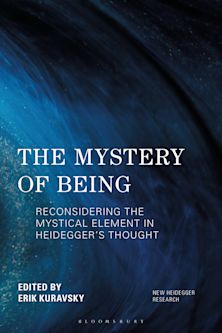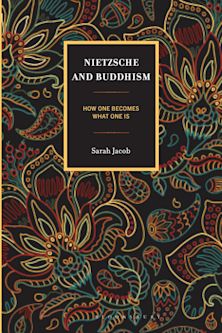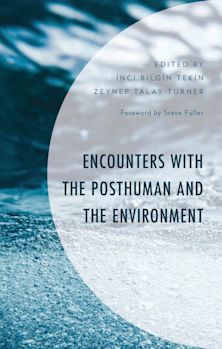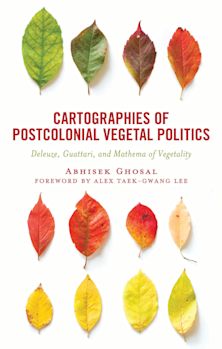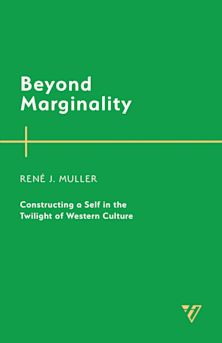- Home
- ACADEMIC
- Philosophy
- Philosophy - Other
- Novelty
Novelty
This product is usually dispatched within 1 week
- Delivery and returns info
-
Free CA delivery on orders $40 or over
You must sign in to add this item to your wishlist. Please sign in or create an account
Description
The question of causality has haunted the history of Western metaphysics since the time of the Pre-Socratic philosophy. Hand-in-hand with attempts to address this question is the promise of unlocking larger and more complicated questions pertaining to human freedom. But what of novelty? In this brilliant extended essay Donald A. Crosby contends that though novelty can't be comprehended without efficient causality, causality requires a concept of novelty; without it cause and effect relations are unintelligible and, indeed, impossible. Crosby, in an excellent, strong, and controversial way makes the claim that freedom is consciously directed novelty. In this way, novelty is distinctive; it is not to be mistaken with either unexpected intersections of causal chains or chaos. Crosby exposes the reality of novelty throughout the book and how it applies to time, possibility, forms of materiality and embodiment, the emergence of life from nonlife, the evloution and nature of consciousness, the methods and goals of education, the character of human history and the task of historians, and also the traits of a good society. In situating novelty so firmly in the crevices of daily life, Crosby connects it to our concept of ourself, our freedom, and how we understand our relationship to the world. Through masterful readings of Isaiah Berlin, Buber, Descartes, Plato, Smart, Whitehead, and especially Henri Bergson Donald Crosby sheds new light on an elusive yet foundational concept in the history of Western thought. This book is essential to process philosophy, humanism, existentialism, philosophy of mind and consciousness, and continental thought in general.
Table of Contents
Chapter 2 Time's Tooth
Chapter 3 Changing Possibility
Chapter 4 Protean Matter
Chapter 5 Profuse Life
Chapter 6 Purposive Mind
Chapter 7 Evocational Education
Chapter 8 Open Society
Product details
| Published | May 03 2005 |
|---|---|
| Format | Hardback |
| Edition | 1st |
| Extent | 140 |
| ISBN | 9780739109847 |
| Imprint | Lexington Books |
| Dimensions | 235 x 161 mm |
| Publisher | Bloomsbury Publishing |
About the contributors
Reviews
-
Crosby provides a wonderfully lucid and carefully balanced metaphysical account of efficient causation and novelty, both of them necessary but neither by itself sufficient for explaining the character of our constantly changing universe. His book lives up to its title: he has sketched in an imaginatively fresh way a metaphysics of novelty that is well-rooted in traditional understandings while transforming those understandings boldly and insightfully.
George Allan, Professor of Philosophy Emeritus, Dickinson College
-
In this rich and provocative book, Crosby offers a wide-ranging defense of the centrality of novelty. Working with thinkers from Bergson to Berlin and Whitehead to E.O. Wilson, he exposes the flaws in determinist positions and crafts a compelling argument for the metaphysical reality of novelty. Crosby acknowledges its complex interweaving with causal conditions, developing a nuanced contextual view of novelty as it functions in the universe at large, in biological evolution, in human freedom, and in an evocative education that contributes to a dynamic open society.
Patrick Shade, Associate Professor and Chair of Philosophy, Rhodes College
-
Novelty is a refreshing book, as pleasing in the beauty of its prose as it is inspired in its case for metaphysical emergentism and its practical applications. This is philosophical theorizing at its best.
Donald Wayne Viney, Professor of Philosophy, Pittsburg State University (Kansas)
-
Novelty would make a good textbook, and not only for undergraduates. It is concise, easily intelligible, and marshals its arguments well. Its treatment of fundamental problems in process philosophy makes it profitable reading, especially since it offers a challenge to many currently accepted models of process.
The Pluralist
-
This is an essay in the great tradition by a thoughtful and highly competent philosophical thinker - a strong, confident and accessible statement of process metaphysics, exploring the pervasiveness and diverse aspects of novelty in the worlds of nature and human activity.
John J. Compton, Professor of Philosophy Emeritus, Vanderbilt University
-
This is a book that challenges the reader to think in alternative categories to those most commonly maintained. For that reason alone, it is worth thorough consideration.
American Journal of Theology and Philosophy















